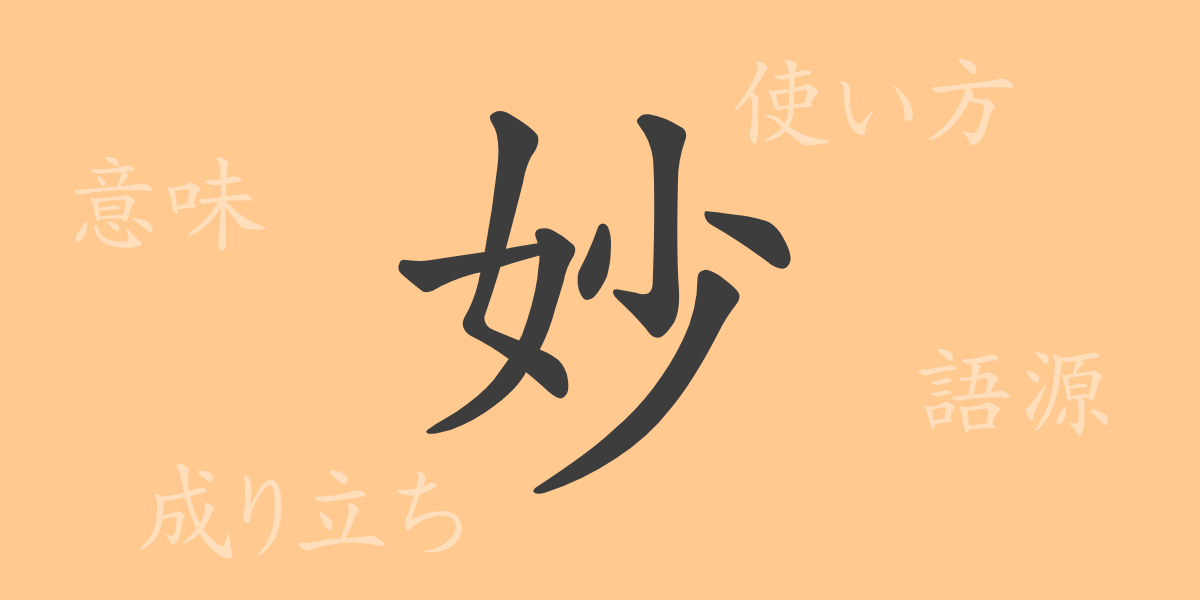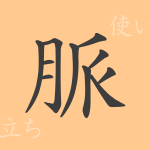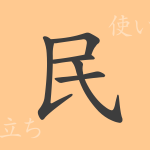In the Japanese language, there are numerous kanji (Chinese characters), but among them, the character “妙” (myou) holds particular intrigue. At first glance, it may appear to be composed of simple strokes, yet the depth of its meaning and the contexts in which it is used are incredibly rich. In this article, we will delve into the origin, meaning, usage, and readings of the kanji “妙” (myou), along with examples of its use in Japanese. You may discover unexpected charm in the “妙” (myou) that you casually use in everyday life.
The Origin of “妙” (myou)
The kanji “妙” (myou) is a character that originated from ancient China, and its formation is highly symbolic. It is composed of the radical “女” (onna), meaning “woman,” combined with “少” (shou), meaning “a little.” This combination conveys the idea of being “skillful down to the finest details,” and it has been used since ancient times to refer to things that are delicate and ingenious.
The Meaning and Usage of “妙” (myou)
The kanji “妙” (myou) is rich in diverse meanings. It is often used in contexts such as “絶妙” (zetsumyō) meaning “exquisite,” or “奇妙” (kimyō) meaning “strange.” Additionally, it is used in “妙齢” (myōrei) to signify “a youthful and beautiful age.” These usages highlight the richness of the Japanese language and its flexible expressive power depending on the context.
Reading, Stroke Count, and Radical of “妙” (myou)
The kanji “妙” (myou) has several readings in Japanese:
- Readings: In On’yomi (Chinese reading), it is read as “ミョウ” (myou), and in Kun’yomi (Japanese reading), it is read as “たえ” (tae).
- Stroke Count: It consists of 12 strokes in total.
- Radical: The radical is “女” (onna), meaning “woman.”
Idioms, Phrases, and Proverbs Using “妙” (myou) and Their Meanings
Idioms, phrases, and proverbs that include “妙” (myou) are commonly used expressions in Japanese. For example, “妙技” (myougi) refers to an especially skillful technique, and “妙案” (myouan) denotes an excellent idea. Additionally, “妙薬” (myouyaku) is a miraculous medicine effective for an illness, and the proverb “試みの妙” (kokoromi no myou) emphasizes the importance of trying things out. These expressions help convey the unique nuances that “妙” (myou) holds in everyday life.
Conclusion on “妙” (myou)
Each kanji character carries with it a story from its origin to its meaning and usage. The character “妙” (myou) is no exception and has been utilized in various forms within our language. With its multifaceted meanings of skillfulness, strangeness, and beauty, “妙” (myou) embodies the richness of Japanese expression. We hope that through this exploration, you have rediscovered the profound charm of the kanji “妙” (myou).

























